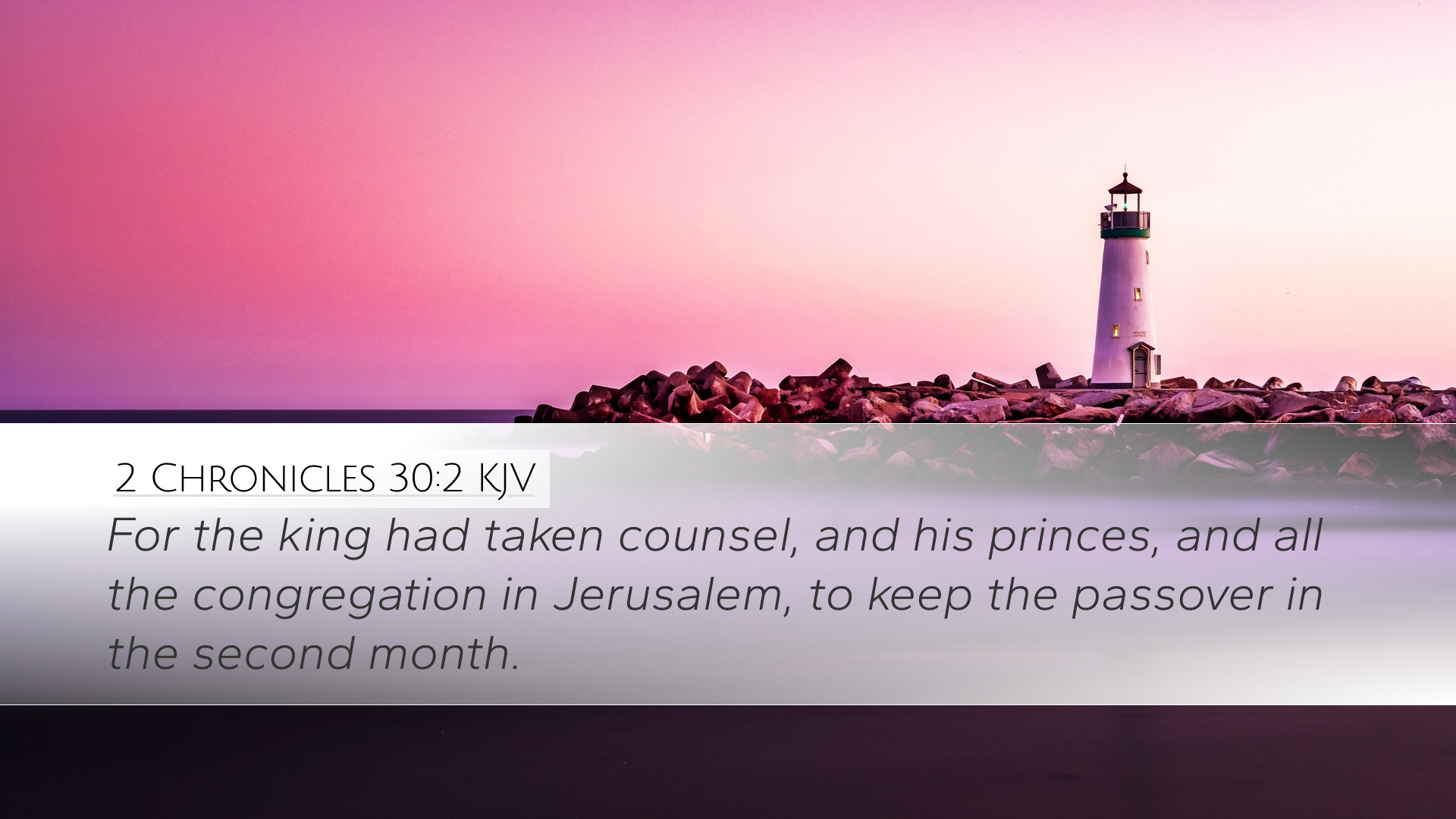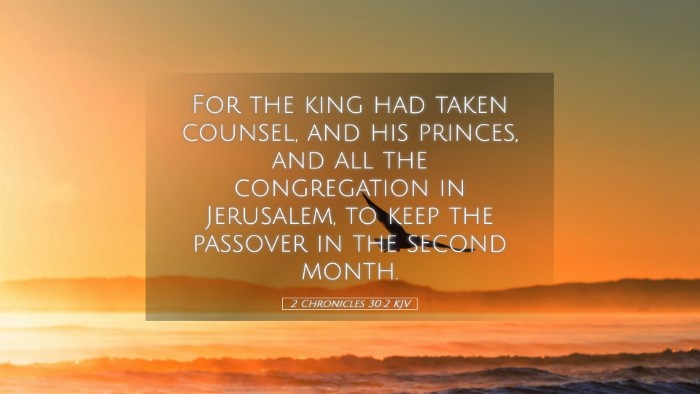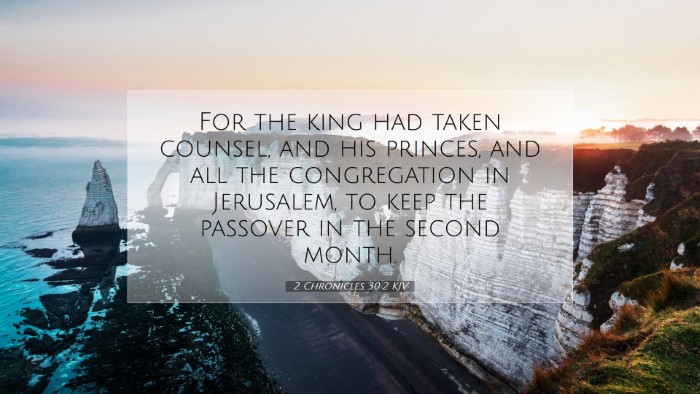Commentary on 2 Chronicles 30:2
In 2 Chronicles 30:2, we find the account of King Hezekiah’s effort to restore true worship in Judah by celebrating the Passover. This verse states:
"For the king had taken counsel, and his princes, and all the congregation in Jerusalem, to keep the passover in the second month."
Contextual Background
The division of the kingdom into Israel and Judah had resulted in varied religious practices. Israel had largely fallen into idolatry and improper worship, as exhibited by Jeroboam's actions (1 Kings 12). In contrast, Judah, under King Hezekiah, sought to revert to authentic worship of Yahweh.
Royal Initiative
Hezekiah's Leadership: Hezekiah’s conscious decision to hold the Passover in the second month is remarkable, as the Law prescribed its observance in the first month (Exodus 12:2, 23:15). Hezekiah's initiative demonstrates his desire to return to religious fidelity and rectify the neglect of spiritual obligations.
Counsel and Consensus
The verse mentions that the decision was made after he consulted with his princes and all the congregation. This shows Hezekiah’s inclusive leadership style, demonstrating a model for governing with the counsel of others:
- Wisdom in Counsel: The mention of taking counsel indicates the importance of seeking wisdom from trusted advisors. Proverbs 15:22 echoes this sentiment, promoting collaboration for successful decision-making.
- Engagement with the People: Involving the congregation signifies a communal approach to worship that emphasizes corporate unity and shared faith experiences.
The Importance of the Passover
Celebration of the Passover was foundational in Jewish tradition, serving as a remembrance of God's deliverance of His people from Egypt. This act of remembrance would renew the covenant relationship with God:
- Theological Significance: Each element of the Passover, including the sacrificial lamb, symbolizes salvation and deliverance, foreshadowing the ultimate sacrifice of Christ (1 Corinthians 5:7).
- Covenantal Renewal: The celebration reinstituted the understanding of God’s grace and restoration, recalling His faithfulness amid their failures.
Implications for Today
Hezekiah's actions provide vital lessons for contemporary worship and leadership in the church:
- Restoration of Worship: Just as Hezekiah sought to restore the Passover, modern believers should seek to affirm the core practices of their faith, ensuring they reflect genuine devotion to God.
- Community Involvement: Church leadership can draw insights from Hezekiah's example in making decisions with a focus on the congregation, fostering a sense of ownership and participation.
- Timeliness of Worship: Delaying the celebration of significant acts of faith may be necessary at times. Hezekiah’s decision to celebrate the Passover later than prescribed emphasizes that the heart of worship matters more than strict adherence to tradition.
Commentary Insights
Matthew Henry
Henry comments on Hezekiah’s resolve, noting that it was necessary to gather the people “to keep the passover,” thereby reclaiming their identity and heritage as God’s chosen people. He emphasizes the importance of a united nation in worshiping the Lord, suggesting that such collective acts are integral to maintaining spiritual vitality in the community.
Albert Barnes
Barnes highlights the notion of God's mercy. Even though the Passover was celebrated in the second month, God's willingness to accept this late observance underscores His compassion for His people, desiring relationship over ritualism. He also points out that this event signifies a turning point, showing the potential for restoration in the midst of Israel's spiritual decline.
Adam Clarke
Clarke elaborates on the practicalities of holding the Passover later, noting the logistical challenges faced by the people in coming together for worship. He underscores not only God’s flexibility regarding the law but also the theological implications of being open to restoration regardless of past failures. Clarke encourages readers to find joy in the restoration of worship as a reflection of God’s grace.
Conclusion
2 Chronicles 30:2 serves as a powerful reminder of the significance of worship, community involvement, and divine mercy. Hezekiah's efforts to reinstate the Passover reflect an earnest pursuit of righteousness that remains relevant for today's believers. By learning from this historical moment, pastors, students, and scholars can engage with the text not only to understand its background but to apply its lessons in contemporary contexts, fostering authentic worship beyond mere tradition.


